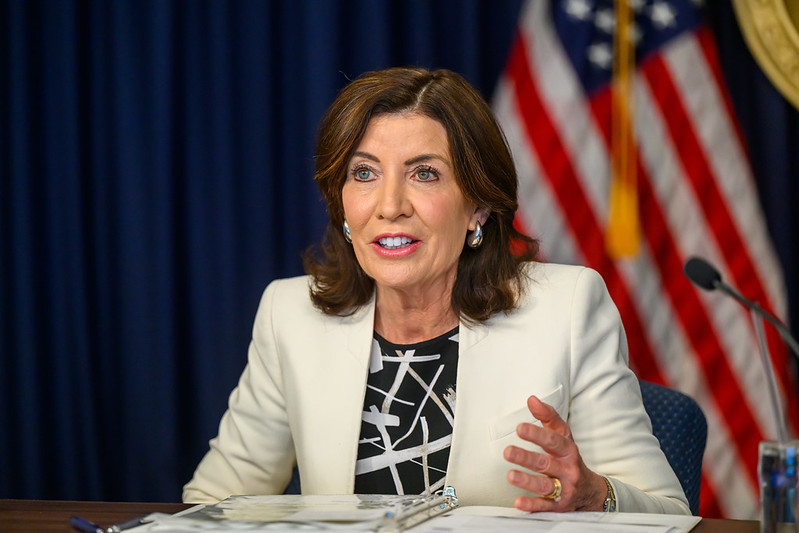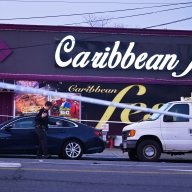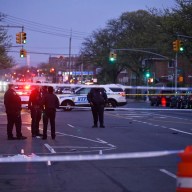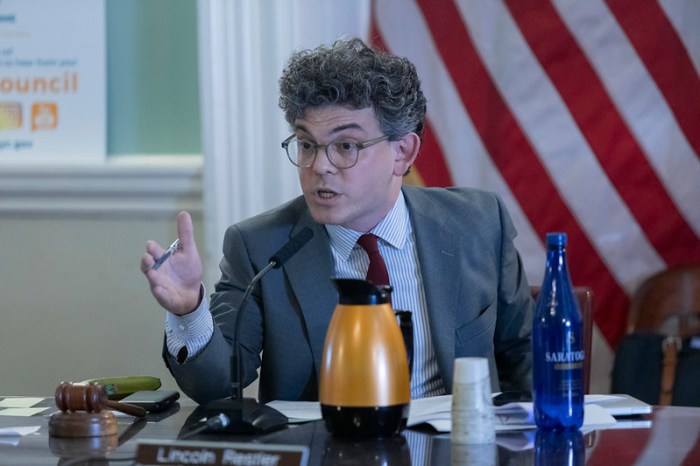By Philip Newman
Shulman spoke before the Aviation Subcommittee of the House Committee on Transportation and Infrastructure Tuesday. The subcommittee, headed by U.S. Rep. John J. Duncan Jr. (R-Tenn.), convened to review whether the FAA and the Port Authority of New York and New Jersey have the authority to cut back flights at LaGuardia.
The lottery conducted Monday by the Federal Aviation Administration in Washington will slash the number of new flights at LaGuardia from 300 to 159 by Jan. 1. It means that many flights already in operation will have to be withdrawn.
FAA officials said they hoped the lottery would bring a 20 percent reduction in congestion at LaGuardia, which was responsible for nearly a quarter of all delays in domestic air traffic in October.
U.S. Rep. Joseph Crowley (D-Forest Hills) whose congressional district includes LaGuardia told the hearing “it has been said that the FAA does not have the authority to determine the number of flights at LaGuardia. If that is so, who will protect the safety of the people on the planes and of our neighbors in Queens? What is to prevent 1,000 or 2,000 more flights? Where do we draw the line?”
U.S. Rep. Nita Lowey (D-Rego Park) said “finally when the FAA takes action to implement a common-sense solution at LaGuardia, a House subcommittee takes offense to the decision. This is a terribly misguided reaction.”
As a result of the lottery, the overall number of flights added since April at the airport has been reduced, but there is still more air traffic than in December 1999.
Shulman recounted her own experiences in trying to take off and land at LaGuardia as one of the countless delayed passengers and described the problem for the thousands of Queens residents whose lives are disrupted by aircraft noise.
“As the problems caused by congestion and delays have worsened, a ripple effect has been experienced at airports across the nation,” she said. “Eventually travelers could decide to avoid LaGuardia altogether.”
Besides Crowley and Lowey, other members of the Queens congressional delegation – Gary Ackerman, Anthony Weiner, and Carolyn Maloney – also testified.
'We told the committee in no uncertain terms that safety at LaGuardia transcends everything else,” said Ackerman. “We explained that expansion is no option since LaGuardia is surrounded on three sides by water.”
FAA officials conducted the lottery using a fish bowl containing capsules with the names of 13 airlines. Preference went to smaller and start-up airlines. Delta Connection, a part of Delta Airlines, got only 20 of the 88 slots it planned to add. US Airways Express got 20 of its planned 82 slots. The result was that 41 flights a day were cut from the schedules of Delta, Midwest Express, Midwest Airways and Continental Airlines.
Delta Connection got 20 slots, Midwest Express eight; US Airways Express, 20; ShuttleAmerica, 14; Southeast Air, 4, AirTran, 11; Spirit, 12; Vanguard, two; Continental Express, 20; American TransAir, six, Midway, 15; and American Eagle, 20. Legend Airlines, which has shut down, got three slots, which will go to other airlines if Legend does not return to the sky.
The FAA rules specify the new schedules must go into effect on Jan. 1, although the lottery is to be replaced by next fall with what officials hope will be an ultimate solution.
The FAA lottery was the latest attempt to alleviate the situation at LaGuardia, which accounted for nearly a quarter of the nearly 44,000 flight delays throughout the United States in October. In September, the Port Authority imposed a moratorium on new flights.
The rapid deterioration of on-time departures at LaGuardia stemmed from legislation known as Air-21 passed last winter by Congress. It provides for unlimited regional jet flights by planes carrying 70 or fewer passengers to underserved airports in an attempt to provide competition and thus lower fares to smaller airports where lack of competition has resulted in fares many travelers called prohibitive.
Shortly after the passage of Air-21, several airlines began applying for slots at LaGuardia until more than 300 takeoffs and landings were under application. For years, LaGuardia handled more than 1,200 flights daily, but on one day in October over 1,400 flights were recorded.
LaGuardia's problem, of course, does not end with inconveniences experienced by the traveler.
Shulman's office said at least 150,000 people live close enough to LaGuardia to be forced to endure noise from the takeoffs and landings and those people along with those in John F. Kennedy International Airport's environs have long appealed for relief.

































